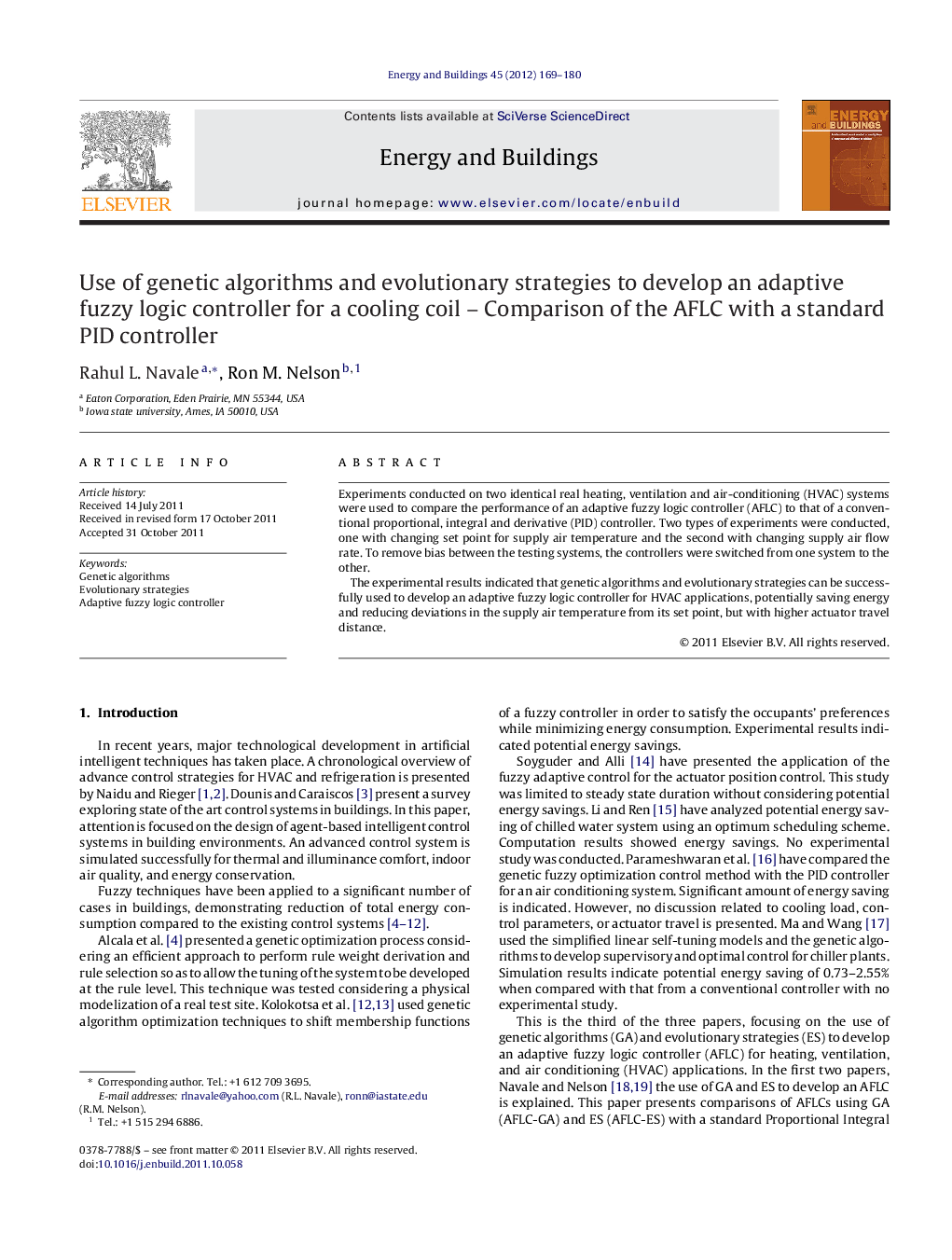| Article ID | Journal | Published Year | Pages | File Type |
|---|---|---|---|---|
| 263997 | Energy and Buildings | 2012 | 12 Pages |
Experiments conducted on two identical real heating, ventilation and air-conditioning (HVAC) systems were used to compare the performance of an adaptive fuzzy logic controller (AFLC) to that of a conventional proportional, integral and derivative (PID) controller. Two types of experiments were conducted, one with changing set point for supply air temperature and the second with changing supply air flow rate. To remove bias between the testing systems, the controllers were switched from one system to the other.The experimental results indicated that genetic algorithms and evolutionary strategies can be successfully used to develop an adaptive fuzzy logic controller for HVAC applications, potentially saving energy and reducing deviations in the supply air temperature from its set point, but with higher actuator travel distance.
